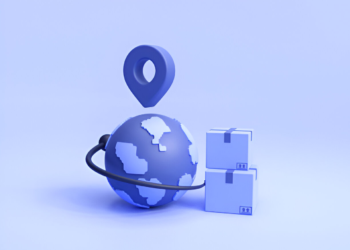
Table of Contents
AI is transforming eCommerce in ways that were once thought impossible. From predicting customer behavior to automating repetitive tasks, AI-powered tools are making online retail smarter, faster, and more profitable.
Tech giants like Amazon, Shopify, and eBay are heavily investing in AI, and they’re not alone.
Retailers worldwide use AI for product recommendations, dynamic pricing, fraud detection, and AI-generated content.
The impact is undeniable—AI is turning online shopping into a highly interactive, hyper-personalized, and frictionless experience.
AI is no longer just an optional tool—it’s a necessity. Brands that fail to integrate AI-powered solutions risk falling behind as consumer expectations evolve.
To help you stay ahead, I’ve compiled major AI trends transforming the eCommerce industry in 2025 and beyond.
7 AI Trends in eCommerce

1. AI Agents: The Evolution from Chatbots to Multi-Agent Systems
AI chatbots have transformed how businesses engage with customers, offering 24/7 instant support for tasks like tracking orders and answering FAQs.
With natural language processing (NLP), these bots now understand context, emotions, and intent, making interactions more human-like.
Companies are adopting AI-driven solutions, as 82% of online shoppers expect immediate responses. However, AI has evolved beyond simple chatbots.
The next big trend I see in AI is multi-agent systems (MAS), where multiple AI agents work together autonomously to complete complex tasks.
Unlike traditional AI, which relies on human coordination, MAS distributes tasks efficiently, enhancing automation.
A great example is Waymo One’s autonomous ride-hailing service, where AI agents manage navigation, traffic, and passenger requests seamlessly.
Businesses are rapidly integrating AI agents. According to a Capgemini survey:
- 10% of companies already use them.
- 82% plan to integrate them within three years.
- 71% believe they will revolutionize workflow automation and customer service.
AI agents are making a tangible impact across industries:
- Data agents process and analyze vast datasets.
- Code agents enhance software development efficiency.
- Security agents detect and prevent cyber threats.
- Customer agents provide personalized, real-time support.
- Employee agents automate repetitive tasks, freeing time for strategic work.
- Creative agents assist marketers and designers in generating content, images, and ideas.
As AI evolves, the evolution from basic chatbots to MAS is redefining business operations.
Companies are no longer just using AI for assistance; they are fully integrating it into workflows, making automation more intelligent, responsive, and seamless.
2. AI-Driven Dynamic Pricing Strategies
AI is helping retailers optimize pricing in real time. Using competitor analysis, demand forecasting, and consumer behavior tracking, AI algorithms help businesses optimize prices, ensuring competitive pricing while maximizing profit margins.
With AI-driven pricing strategies, you can stay ahead of fluctuating market trends and boost conversions.
This strategy, known as dynamic pricing, helps you stay competitive without rigorous research, calculations, or manual guesswork.
Amazon is a prime example, making up to 2.5 million price adjustments daily based on competitor discounts, changes in demand, and other market trends.
In 2025, more businesses will adopt AI-powered pricing strategies, helping them make better data-driven decisions around their pricing strategies and, as a result, optimize margins and boost revenue with minimal effort.
3. Advanced AI-Powered Search
In 2025, AI-powered search will extend beyond text, enabling searches through images, voice, video, and even conversational prompts.
This evolution, driven by generative AI and multimodal search capabilities, will make information retrieval faster, smarter, and more intuitive.
AI is transforming how businesses manage site search, product discovery, and customer support.
By automating catalog searches and reducing manual work, AI-driven search is helping companies enhance user experience and boost conversion rates.
The enterprise search market is expected to reach $12.9 billion by 2031 as more organizations adopt AI for deeper insights and automated knowledge retrieval.
Leading companies are already leveraging AI-powered search to streamline operations.
Snap’s AI-powered chatbot has seen 2.5x more engagement through multimodal search.
Moody’s uses AI to process vast datasets efficiently, enabling analysts to make quicker, data-driven decisions.
Meanwhile, Mayo Clinic leverages AI search to provide researchers with access to 50 petabytes of medical data for groundbreaking research.
AI-Powered Search: Industry Predictions for 2025
AI-powered search will continue revolutionizing key industries:
- Finance: AI-driven search will provide employees with precise, role-specific insights, improving decision-making.
- Retail: Shoppers will use voice, images, and natural language to search to find products more accurately.
- Healthcare: AI-enhanced search will improve medical research, reduce administrative burdens, and enhance patient education.
4. AI-Generated Product Descriptions & Content Creation
While using AI to generate content has been quite controversial, I still see a persistent trend in AI revolutionizing how businesses create product descriptions and marketing content.
Instead of spending hours writing copy, businesses can use AI tools to generate SEO-optimized descriptions and content in seconds.
However, they should be used ideally as an assistant rather than a tool you rely on to do all the work for you.
Although generative AI tools like ChatGPT, Jasper, Midjourney, and Runway ML have become smarter and faster, the content produced is almost similar to human work, but I still believe human oversight is needed to ensure the content is of great quality and fits the business objective.
Here are use cases of AI transforming content creation:
- Instant Product Descriptions: AI tools like Shopify’s product description generator create engaging, keyword-rich copy in seconds.
- Scalable Content Production: AI ensures consistency, allowing businesses to generate content at scale without compromising quality.
- AI-generated visuals: From product images to mockups and videos, AI helps businesses create endless design variations to enhance marketing materials.
- Time & Cost Savings: Automating repetitive tasks frees up time to focus on strategy, creativity, and brand voice.
5. AI-Powered Inventory & Supply Chain Management
Managing inventory and supply chains used to be a guessing game, but AI changed everything.
AI provides several benefits to the supply chain industry as businesses leverage AI to predict demand, optimize stock levels, and automate logistics.
As a result, the market value for AI in the supply chain industry is projected to reach $58.55 billion by 2031, a CAGR of 40.4% from 2024.
Here’s how AI transforms inventory and supply chain management:
- Demand Forecasting: AI analyzes sales trends, seasonality, and external factors like weather or market conditions to predict demand accurately. McKinsey reports that AI-driven forecasting can reduce errors by up to 50%.
- Real-Time Inventory Tracking: AI-powered systems monitor stock levels, automatically updating quantities and alerting teams when restocking is needed. This reduces manual errors and keeps inventory optimized.
- Automated Supply Chain Adjustments: AI detects potential disruptions—like shipping delays or supplier shortages—and suggests alternative suppliers or redirects shipments to minimize delays.
- Cost Optimization: AI helps businesses find the most cost-effective shipping routes and supplier deals, reducing logistics expenses and improving profit margins.
With AI, supply chains become more predictive than reactive, helping businesses stay ahead of demand and deliver better customer experiences.
6. AI in Fraud Detection & Cybersecurity
AI is revolutionizing cybersecurity, making threat detection faster, smarter, and more proactive. By 2025, businesses will increasingly adopt AI-powered security tools to counter evolving cyber threats.
Organizations integrating AI into their security frameworks benefit from automated threat detection, reduced manual workload, and faster response times.
No surprise, then, that Gartner predicts 50% of enterprises will adopt AI-driven security solutions by 2028, a 5% increase from 2024.
The stakes have never been higher. In 2024, the average data breach cost was $4.88 million, and cyber criminals are now deploying AI for more sophisticated attacks, including automated phishing and deepfake-driven fraud.
To stay ahead, businesses must strengthen their defenses with AI-driven security.
Research shows that companies using AI for cybersecurity save an average of $2.2 million per breach, thanks to automation and predictive analytics.
Financial institutions rely on AI-powered KYC (Know Your Customer) systems to detect counterfeit documents and prevent fraud.
Manufacturers use AI for data integrity verification, safeguarding AI-powered machinery from manipulation. Meanwhile, media companies are combating misinformation and deepfake threats with AI-driven content authentication.
The real challenge? Cybersecurity has become an AI arms race, with both attackers and defenders leveraging AI. Adding to the complexity, 33% of IT professionals cite a lack of AI expertise as a major barrier to security adoption.
Companies like Google, Palo Alto Networks, and Deloitte are stepping in, offering AI-driven threat intelligence and automated security solutions to bridge the gap.
As cyber threats become more sophisticated, AI has become an essential tool to help detect and prevent cyber threats. Businesses that fail to integrate AI-powered security solutions risk falling behind in an increasingly hostile digital landscape.
7. AI-Powered Customer Experience
AI is revolutionizing customer experience (CX), making interactions so seamless that you barely notice the technology behind them.
Businesses prioritize AI-driven customer service, with 55% of organizations focusing on AI-powered support solutions in 2026.
Today’s AI-driven customer support systems use real-time insights, speech recognition, and sentiment analysis to improve interactions.
Companies are now working toward AI-powered CX that proactively resolves issues before customers even realize they need help.
AI Enhancing Customer Interactions
- Personalization: 71% of consumers expect companies to provide personalized experiences. AI-driven insights analyze customer behavior, purchase history, and social media activity to tailor recommendations and support.
- Omnichannel Support: 75% of customers use multiple channels when engaging with brands. AI ensures a seamless experience across all touchpoints, from chat to email to voice assistants.
- Sentiment Analysis: AI analyzes customer interactions across various platforms—social media, chat, and email—to measure customer sentiment and improve real-time responses.
AI Real-World Use Cases
- Alaska Airlines: Uses generative AI to help travelers find flights and plan trips with a single prompt.
- NotCo: A Chilean food tech company deploys AI-powered chatbots to provide 24/7 data-driven insights.
- Discover Financial: Uses AI to assist 10,000 customer service agents, speeding up resolutions and enhancing CX.
AI-Powered CX: Industry Predictions for 2025
Retail & eCommerce
Retailers will use Gen AI experiments to create personalized interactions and multichannel support, such as AI stylists, virtual try-ons, and AI-generated images or videos to improve shopping experiences.
Manufacturing
AI will transform the industry from stock-and-sell models to personalized, make-to-order sales models, requiring real-time data unification across IT and operations.
Telecommunications
AI will create hyper-personalized customer journeys. Small businesses will use AI-powered product and service recommendation agents for their connectivity, communication, and point-of-sale needs.
Conclusion
We’ve seen how AI is transforming every aspect of eCommerce, from content creation and AI agents to automated inventory management and intelligent customer support.
There’s no doubt that this trend will continue to evolve and be inevitable in the next five years and beyond.
Businesses that embrace AI are gaining a competitive advantage over their peers.
As we move into 2025, AI will continue to enhance customer experiences, streamline operations, and drive new growth opportunities.
Businesses that leverage AI-driven insights and automation will be better equipped to meet evolving consumer expectations.
AI Trends in eCommerce FAQs
What are the applications of artificial intelligence (AI) in eCommerce business?
AI in eCommerce has several applications that help improve business operations. Here are some examples of AI in eCommerce:
AI-Powered Search—AI enables shoppers to search for products using images or voice commands, making online shopping faster and more intuitive.
Personalized Product Recommendations—AI analyzes customer data, such as browsing history and purchase behavior, to suggest highly relevant products. This boosts sales and improves user experience.
AI-Powered Chatbots & Virtual Assistants—AI-powered chatbots provide instant customer support, answer FAQs, and guide shoppers through the buying process, reducing reliance on human agents.
Dynamic Pricing Optimization—AI helps retailers adjust real-time product prices based on demand, competitor pricing, and market trends to maximize revenue.
Fraud Detection & Cybersecurity—AI detects suspicious transactions, preventing fraud and protecting sensitive customer data.
How is AI being used in eCommerce?
AI is making a great impact on eCommerce businesses and is transforming customer experience in various ways:
AI-Powered Advertising—AI optimizes ad targeting by analyzing user behavior and preferences.
AI-Powered Search & Discovery—AI helps customers find relevant products faster with smarter search algorithms.
Automated Customer Support—AI chatbots efficiently handle inquiries, returns, and order tracking.
Smart Inventory Management—AI predicts demand trends to prevent overstocking or stockouts.
AI-Generated Content—AI tools create product descriptions, ad copies, and even marketing emails.










